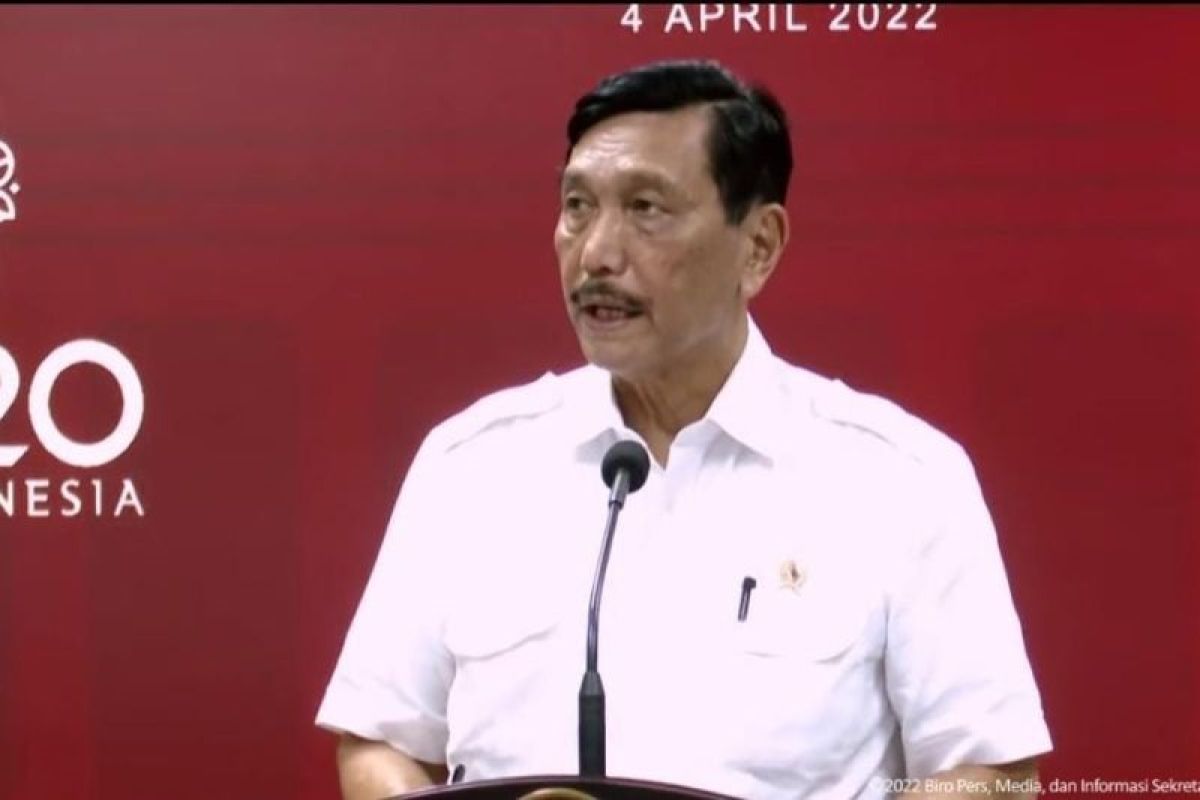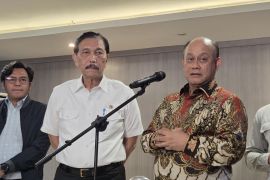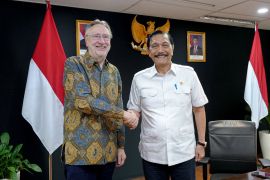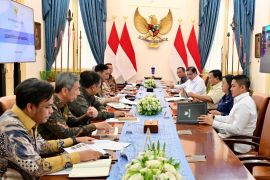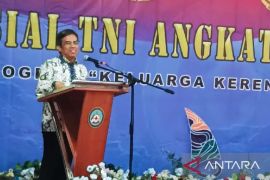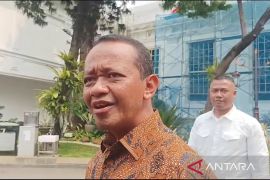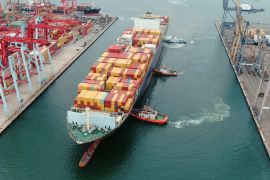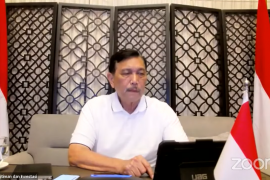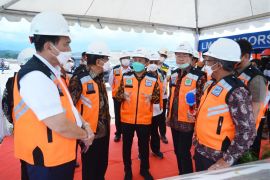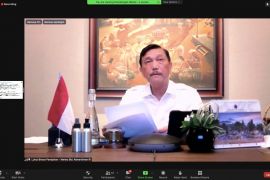From the data above, we conclude that the Omicron variant in Indonesia is in a controlled positionJakarta (ANTARA) - Indonesia's economic recovery has shown a positive trend since late January this year due to controlled Omicron spread, Coordinating Minister for Maritime Affairs and Investment Luhut Pandjaitan has said.
"Although it had declined, Indonesia's economic recovery was able to rise quickly and showed a very positive trend since the end of January," Pandjaitan said in a press statement that was issued after a limited meeting on the evaluation of the implementation of community activity restrictions (PPKM) in Jakarta on Monday.
The controlled spread of the Omicron variant has allowed the economic recovery to be well maintained, he added.
This can be seen from the expenditure index, which has increased in all regions, with Bali and Nusa Tenggara reaching their highest levels since the pandemic struck, Pandjaintan noted.
According to Pandjaitan, the COVID-19 situation currently is very positive. Nationwide, in less than 3 months, daily cases have fallen steeply by 97 percent of the peak cases caused by the Omicron variant.
In addition, nationally, active cases have also declined by 83 percent from the previous peak, so currently, they are below 100 thousand, and the rate of hospitalization in hospitals has decreased to 85 percent.
The number of fatalities has also fallen 88 percent compared to the past peak of Omicron cases.
"From the data above, we conclude that the Omicron variant in Indonesia is in a controlled position," Pandjaitan explained.
Several new sources of economic growth have emerged during the COVID-19 pandemic with the development of new trends, Minister of Finance, Sri Mulyani Indrawati, said earlier.
"Especially, the new normal lifestyle related to a healthy lifestyle and the widespread use of digital technology," she noted.
The new normal lifestyle has led to healthcare and pharmaceutical industries and the digital economy becoming new sources of growth for the country, she noted.
In addition to the new normal lifestyle, changes in the world trade map and new investment have become the newest sources of growth after the pandemic, the minister said.
This is due to the diversification of global supply chains and the initiation of regional supply chains, which have made the machinery industry, electronics industry, communication tools industry, as well as chemical and mineral downstreaming new growth sectors for the economy.
"Indonesia is very aware of this trend and will continue to re-calibrate its policies. We hope we can place the domestic economy in the right position and will be able to take advantage for our own country in the form of resources and potential," Indrawati said.
The green economy has become a new source of growth for countries, she noted. The green economy requires a zero-emission policy and green investment, which is expected to bring focus on the economic value of carbon and renewable energy technology in the coming years.
Indonesia is currently in discussions with many partners regarding commitments to build a green economy, especially in contributions that are determined nationally.
Indrawati said that all these new sources of growth must be tapped through a structural reform agenda to accelerate priority programs and various reform agendas in Indonesia.
Related news: First-quarter economic growth realization to be better: Ministry
Related news: Corruption hampers sustainable economic growth: KPK
Related news: Government to control COVID spread during Ramadan: minister
Translator: Rangga PA, Azis Kurmala
Editor: Sri Haryati
Copyright © ANTARA 2022
